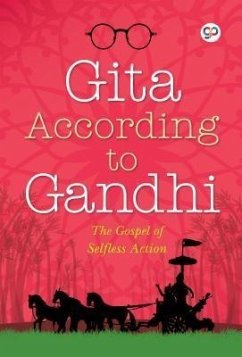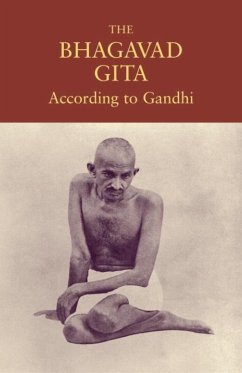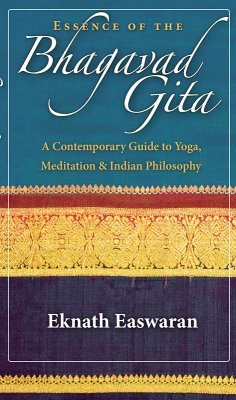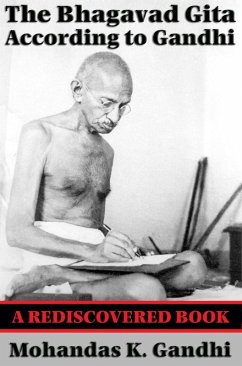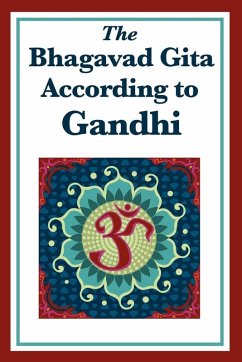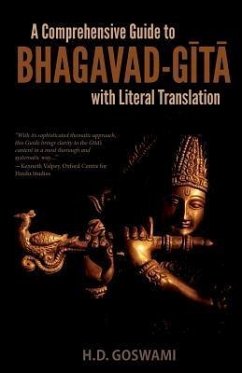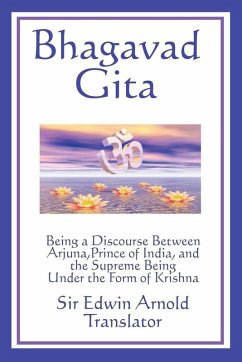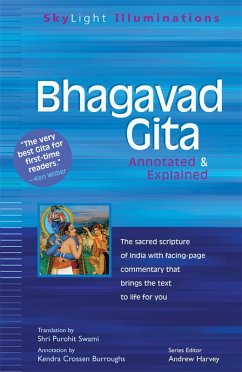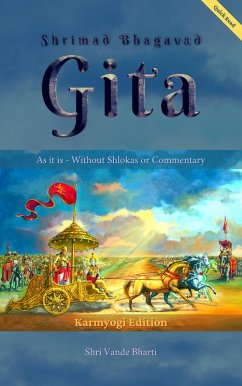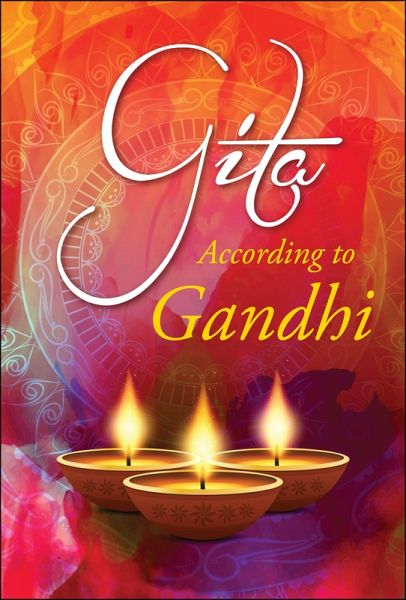
Gita According to Gandhi (eBook, ePUB)
Versandkostenfrei!
Sofort per Download lieferbar
1,99 €
inkl. MwSt.
Weitere Ausgaben:

PAYBACK Punkte
1 °P sammeln!
Among the various interpretations of the Bhagavad Gita, the one by Mahatma Gandhi holds a unique position. Unlike other interpretations, Gandhi's commentary is direct and to the point, not offering an opinion on the meaning of the text, but fleshing out the message, often relating it to his own extraordinary experiences. Gandhi interpreted the Bhagavad Gita, which he regarded as a gospel of selfless action, over a period of nine months from February 24th to November 27th, 1926 at Satyagrah Ashram, Ahmedabad. The morning prayer meetings were followed by his discourses and discussions on the Bha...
Among the various interpretations of the Bhagavad Gita, the one by Mahatma Gandhi holds a unique position. Unlike other interpretations, Gandhi's commentary is direct and to the point, not offering an opinion on the meaning of the text, but fleshing out the message, often relating it to his own extraordinary experiences. Gandhi interpreted the Bhagavad Gita, which he regarded as a gospel of selfless action, over a period of nine months from February 24th to November 27th, 1926 at Satyagrah Ashram, Ahmedabad. The morning prayer meetings were followed by his discourses and discussions on the Bhagavad Gita. During this time-a period when Gandhi had withdrawn from mass political activity-he devoted much of his time and energy to translating the Gita from Sanskrit into his native Gujarati. As a result, he met with his followers almost daily, after morning prayer sessions, to discuss the Gita's contents and meaning as it unfolded before him. This book is the transcription of those daily sessions. This ebook has been professionally proofread to ensure accuracy and readability on all devices.
Dieser Download kann aus rechtlichen Gründen nur mit Rechnungsadresse in A, D ausgeliefert werden.




